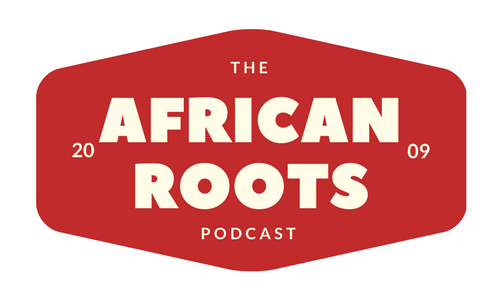Welcome back to the African Roots Podcast! You can reach me always at AfricanRootsPodcast@gmail.com.
Well Happy Easter to everyone! I know that many of you are busy making preparations for the holiday weekend and for the big Easter dinner as well. Holidays like Easter are great times to make memories! I have warm memories of dyeing Easter eggs the night before, and of putting on the new Easter dress for Sunday Mass, with the scratchy krenlin slip underneath! It’s always great to have fond memories like that!And this is truly spring! The Cherry Blossoms are in full bloom in the DMV, but beyond that–the genealogy world is thriving. Well things are going on here in Maryland. Judy Russell aka The Legal Genealogist is coming to Baltimore to speak all day at Enoch Pratt Free library at the branch in Canton, the southeast anchor branch of the library. One always learns a lot when one hears her present.
Next week, Dr. Heather Williams will look at the entire phenomenom of African American Genealogy and she will present at the Reginald Lewis Museum next Friday, April 2. Also Dr. Green from Morgan State University will be presenting a lecture about a community of Free People of color in Talbot County Maryland. I shall present at the Library in Hyattsville Maryland on April 2nd as well, so things are truly picking up here, as they are all over the country. The conference season is beginning, as NGS is in May, the Jamboree is in June, and MAAGI in July. Summer will end with IBGS and of course the AAHGS conference is in the fall.

MAAGI – The Teaching Institute
Have you thought about sharpening your skills? If so, then a genealogy institute is something that you may want to explore. There is the Midwest African American Genealogy Institute, that will unfold this year in Allen County Library in Ft. Wayne Indiana. The dates are July 12-14th this year. But MAAGI promises to be interesting, as there are 4 tracks that you may want to explore. And imagine taking 12 classes over 3 days with focus on one area. This is quite different from a conference where all of the sessions that you sit in on, are different and not connected. MAAGI is in the 4th year and has now expanded to the Genealogy Center at ACPL for the first time.
Of course Washington DC will host the International Black Genealogy Summit. Some may want to come to IBGS a day or two earlier to get some research completed. And AAHGS holds up the end of the calendar year, which will be in Atlanta this year. So the season is fully underway. I look forward to California and also to Odessa TX later this year.
A word about researching—I recently spent some time at the National Archives, and it was a good exercise for me, to go back and do things the old way. That’s right–I pulled out the old microfilm, the old soundex system, and using the microfilm. Now, I use digitized records all the time–but I do think that digitization has gotten us so far away from the original publication–the microfilmed publication. The old census records were images made of the large census books. With microfilm, you are conscious of the enumeration district, or military district, or however the local community recorded data. With computer images, we don’t always keep in mind the composition of the census records and how the data was presented. In addition, the indexing with the soundex can occasionally be a bit better. I have seen a case where a man called Cesar, was indexed Casan. I understand that penmanship can be a challenge, but I find the image from microfilm give me a bit of clarity even in enlarged. I think that we need to remember the old way of doing things—it is worthwhile to revisit the libraries and repositories.
And interesting story was shared this week. This is the story of a tiny fishing village in Maine called Malaga Island. They were scorned because they were mixed race. They were not “in synch” with the larger popuplation. They were simply evicted from the island. For many years it was never spoken about, and now after almost a century–there is an effort to talk about this history. This tiny community of African Americans, and other mixed race people had a history that has literally been erased from the map of Maine.
I got a very nice letter from a reader of one of my blogs this week. A reader saw the article that I wrote about Cudjoe Lewis. He was one of the last known survivor of the slave ship Clotilde.
He was a young boy when captured. He was the last known survivor. He lived into the 20th century. He always wanted to return home, but never made it back home to Africa. His culture was Yoruba, though he was from Dahomey, which is now the Republic of Benin. I wrote an article about him and included a photo and spoke about his life. He married and had children and grandchildren as well. He lost several of his children over the years. Well this week, I got a very nice article from a woman who is a direct descendant of Cudjoe Lewis. She is the 5th great grand daughter of Cudjoe Lewis. She thanked me for writing the piece and was letting me know that his legacy is remembered by his descendants. I was so touched and moved to hear from her. I was honored, and humbled. His family survived, and their resilience continues.
Well, thanks for listening and remind you to remember to tune into Bernice Bennett’s show. She was off this week, but is returning next week and will be bringing us another wonderful guest.
Have a great week, a Happy Easter, and remember to keep researching, keep documenting and keep sharing what you find!












